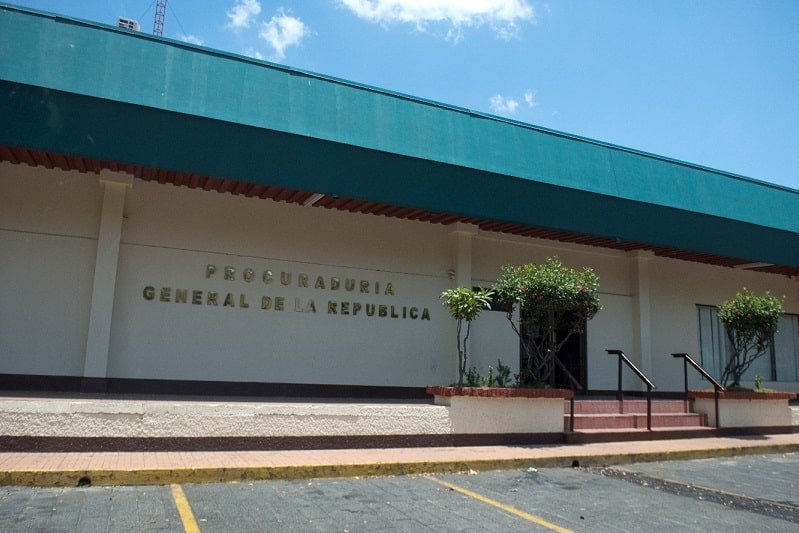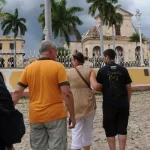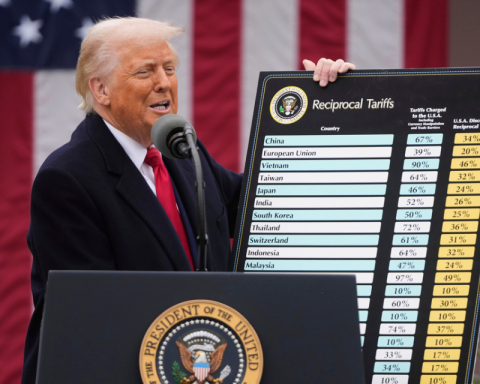The directors of the private sector chambers that were outlawed last Monday by a ministerial agreement are afraid. They swim in uncertainty. They wonder why they were given this blow at this time, when they had chosen to keep as low a profile as possibleprecisely with the intention that this did not happen to them.
“We met with (César) Zamora (Cosep president), and he told us about the efforts they were making to survivealso economically, and he was confident that the storm would abate”, and that they would manage to weather it, said from anonymity, the director of a chamber of the productive sector.
It is difficult to know what Zamora knew to make him feel confident, but by connecting the dots, other executives concluded that “it is not something they decided right now”, because if the cameras had something in common, it is that they were all trying to meet the requirements to complete the process that will take them back from the Ministry of Public Works (Mific), to the Ministry of the Interior.
“Perhaps César Zamora believed that by issuing that statement they were not going to close it, but they already had all this planned,” said a businesswoman affiliated with a service sector chamber, referring to the February 13 statement, in which the Superior Council of Private Enterprise (Cosep) thanked the Government for its “unilateral decision to release 222 prisonersamong them, seven members of Cosep”.
The manager of a manufacturing company said that “the bombing on Monday was already suspected, after the closure of Asobanpso some chambers went ahead to liquidate their staff, and since many were no longer functional, many companies made their efforts on their own”.
Questioned about it, the manager of a company that provides services to the construction sector, wondered “what is behind decisions like this? What happened?”, especially when considering that the ruling couple “normally reacts to what they consider aggression” towards them.
This source assessed that if the release of the 222served to “lower the tension”, it is not understood that later they declared traitors to the homeland and they will confiscate at 94and now launch themselves head-on against the tops of the private sector in full.
Who’s next?
Beyond the answers to these questions, the executives of the affected entities have serious concerns, not only because there is no certainty about the mechanisms to comply with the closure order, but also because of the possibility that some of them may be victims of new coercive measures by the regime.
There are many doubts and a lot of concern about the destination of the assets and bank accounts, but the directors fear that they will be arrested when they arrive at the Interior or the Attorney General’s Office, as happened to the president and vice president of Cosep, Michael Healy and Álvaro Vargasrespectively.
They also fear that when they get to manage, even if they are not arrested, they will include them —them or their relatives— in a list similar to that of the 94 expatriates.
“Nobody wants to expose themselves. I know that there is a lot of concern that they will be affected personally, so they prefer to wait until the waters calm down,” said one of the managers.
Despite the fear, there is a lot of management that someone must do. For example, to define what will happen to the Cosep headquarters, which is mortgaged with a commercial bank, which continues to collect its fees, for which businessmen wonder if by confiscating it, the Government will take charge of continuing to pay it, or they will just confiscate it.
“Supposedly, there are two months to liquidate everything. The Attorney General’s Office has been explaining to them that this is a dissolution process, and that the assets pass to the name of the State,” said the source.
Although most of those consulted assured that the bank accounts have been frozen, at least since Monday night, this source trusts that the chamber to which the company that it co-manages is affiliated will be able to use the money that remains in the bank to write off staff and vendors.
They wonder how to pay the workers
“We are also consulting with the lawyers what can be done with the rest of the money after paying bills,” he revealed.
The aforementioned businesswoman hoped that they would have the possibility of paying the few personnel that still worked for the chamber in which her company was affiliated, based on the fact that “the law grants 72 hours to dissolve, dispose of resources and cancel liquidations due to dismissal , but they blocked the accounts,” he lamented.
“They are defining who to contact to proceed to pay the liquidations, because the ministerial agreement does not specify processes,” said the former director of one of the closed cameras.
The process is far from being the same for everyone, since the largest chambers have more staff to liquidate, and assets to deliver. Some have their own buildings, while others rented offices. Some operated with just three people, while others, much older, have a payroll of 70 employees to lay off.
Looking to the future, the option is to take advantage of technology to meet virtually, and coordinate business activities, but now as a group, not as chambers, to continue working on what the law allows, even if they can no longer, for example, continue having bank accounts.

















